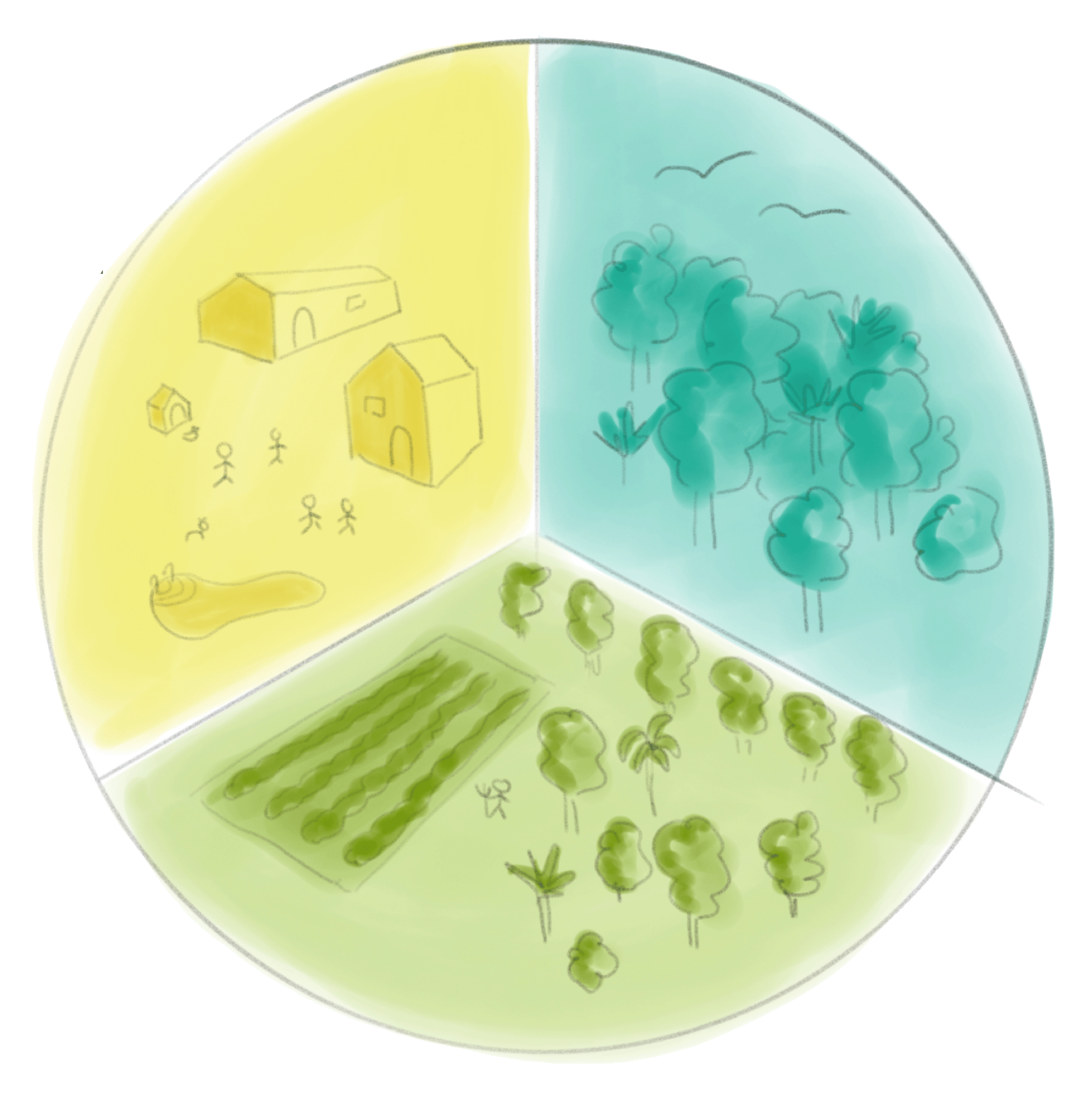
Permaculture Ethics
The ethics earth care, people care and fair share form the foundation for permaculture design but they are also found in most traditional societies. Ethics are culturally evolved mechanisms that regulate self-interest, giving us a better understanding of good and bad outcomes.
The greater the power of humans, the more critical ethics become for long-term cultural and biological survival.
Permaculture ethics are distilled from research into community ethics, learning from cultures that have existed in relative balance with their environment for much longer than more recent civilisations.
This does not mean that we should ignore the great teachings of modern times, but in the transition to a sustainable future, we need to consider values and concepts outside the current social norm.

earth care
people care
fair share
Earth care
Provision for all life systems to continue and multiply.
Fair share
Setting limits to population and consumption so that people do not take more than what is needed. By governing our own needs, we can set resources aside to further the above principles. This principle is also described as share the surplus.
People care
Provision for people to access those resources necessary for their existence.
Permaculture emphasizes patterns of landscape, function, and species assemblies. It determines where these elements should be placed so they can provide maximum benefit to the local environment. Permaculture maximizes useful connections between components and synergy of the final design. The focus of permaculture, therefore, is not on individual elements, but rather on the relationships among them. Properly done, the whole becomes greater than the sum of its parts. Permaculture seeks to minimize waste, human labor, and energy input and maximize benefits through synergy.
Permaculture design is founded in replicating or imitating natural patterns found in ecosystems because these solutions have emerged through evolution over thousands of years and have proven to be effective. As a result, the implementation of permaculture design will vary widely depending on the region of the earth it is located in. Because permaculture's implementation is so localized and place specific, scientific literature for the field is lacking or not always applicable. Design principles derive from the science of systems ecology and the study of pre-industrial examples of sustainable land use.